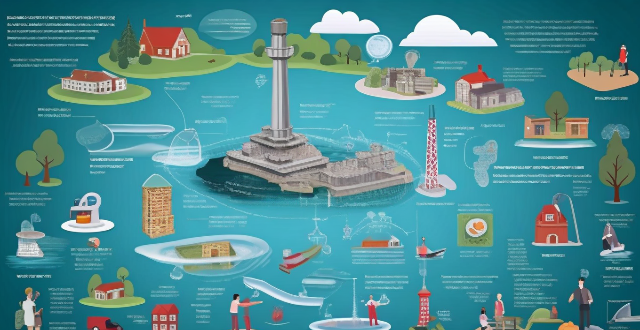Climate change affects the fundamental rights of individuals and communities worldwide through its impacts on health, food security, water access, and displacement. Rising temperatures and extreme weather events can lead to an increase in heat-related illnesses, respiratory problems, and infectious diseases, as well as exacerbate existing health disparities. Changes in temperature and precipitation patterns can disrupt agricultural production, leading to crop failures and reduced yields, resulting in food shortages, increased prices, and malnutrition. Climate change poses significant threats to water availability and quality, with rising temperatures leading to increased evaporation rates, droughts, and water scarcity. Displacement due to rising sea levels, flooding, and other environmental factors can result in loss of homes, livelihoods, and social networks, as well as increased vulnerability to violence and exploitation. It is imperative that governments, international organizations, and individuals take urgent action to mitigate the effects of climate change and protect the fundamental rights of all people, prioritizing the needs of vulnerable populations.

The Ethical Implications of Climate Change on Human Rights
Climate change is a global challenge that affects the fundamental rights of individuals and communities worldwide. The ethical implications of climate change on human rights are multifaceted and require a comprehensive understanding of the issues involved. This essay will explore the various ways in which climate change impacts human rights, including health, food security, water access, and displacement.
Health Impacts
One of the most significant ethical implications of climate change on human rights is its impact on health. Rising temperatures and extreme weather events can lead to an increase in heat-related illnesses, respiratory problems, and infectious diseases. Additionally, climate change can exacerbate existing health disparities, particularly among vulnerable populations such as children, the elderly, and those with pre-existing medical conditions.
Food Security
Climate change also has a profound impact on food security, which is essential for human survival and well-being. Changes in temperature and precipitation patterns can disrupt agricultural production, leading to crop failures and reduced yields. This can result in food shortages, increased prices, and malnutrition, particularly in regions where agriculture is the primary source of income.
Water Access
Water is a fundamental human right, and climate change poses significant threats to water availability and quality. Rising temperatures can lead to increased evaporation rates, droughts, and water scarcity, particularly in arid and semi-arid regions. Additionally, extreme weather events such as floods and storms can contaminate water sources with pollutants and pathogens, posing risks to public health.
Displacement
Climate change can also lead to displacement of people due to rising sea levels, flooding, and other environmental factors. This can result in loss of homes, livelihoods, and social networks, as well as increased vulnerability to violence and exploitation. Displaced individuals may face discrimination and barriers to accessing basic services such as healthcare and education, further exacerbating their already precarious situation.
Conclusion
In conclusion, climate change has far-reaching ethical implications for human rights, including health, food security, water access, and displacement. It is imperative that governments, international organizations, and individuals take urgent action to mitigate the effects of climate change and protect the fundamental rights of all people. This requires a comprehensive approach that addresses both the causes and consequences of climate change while prioritizing the needs of vulnerable populations.